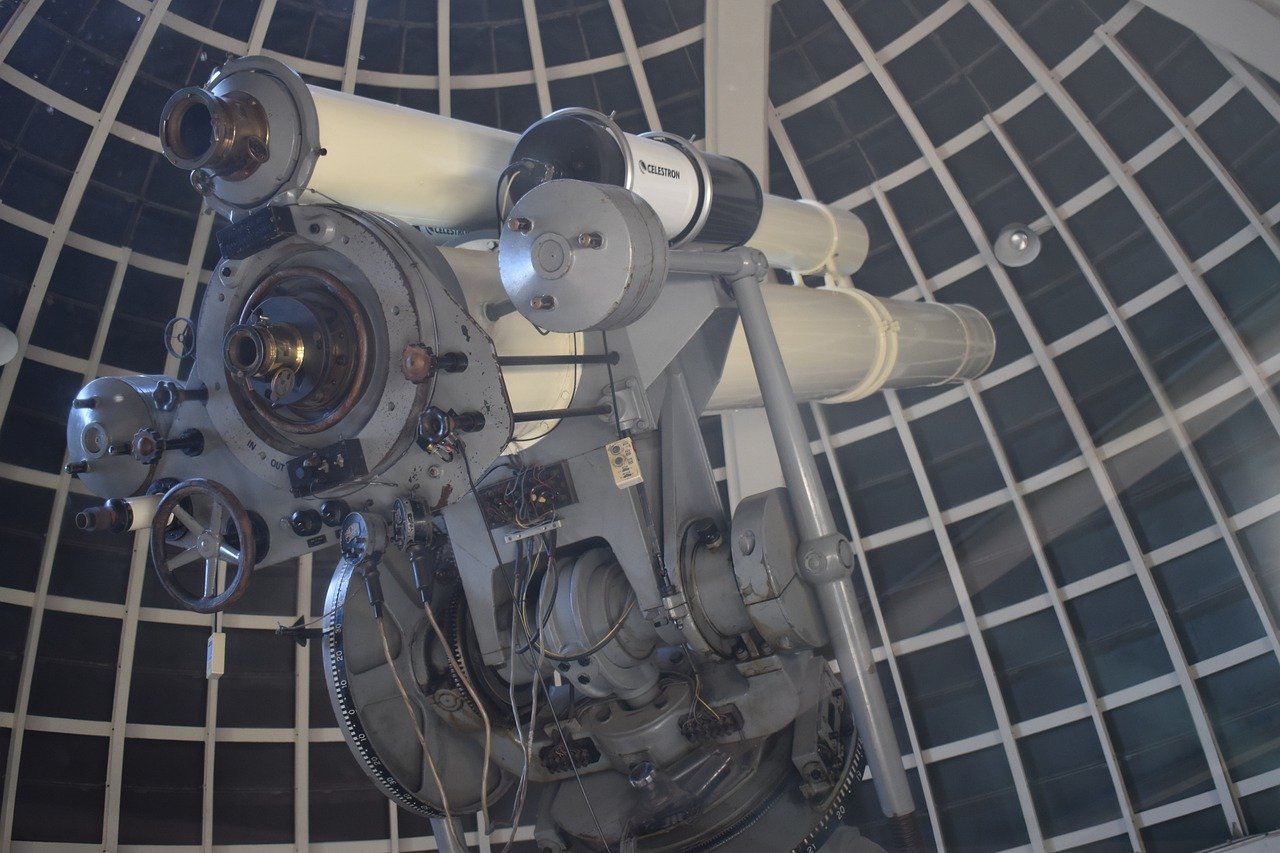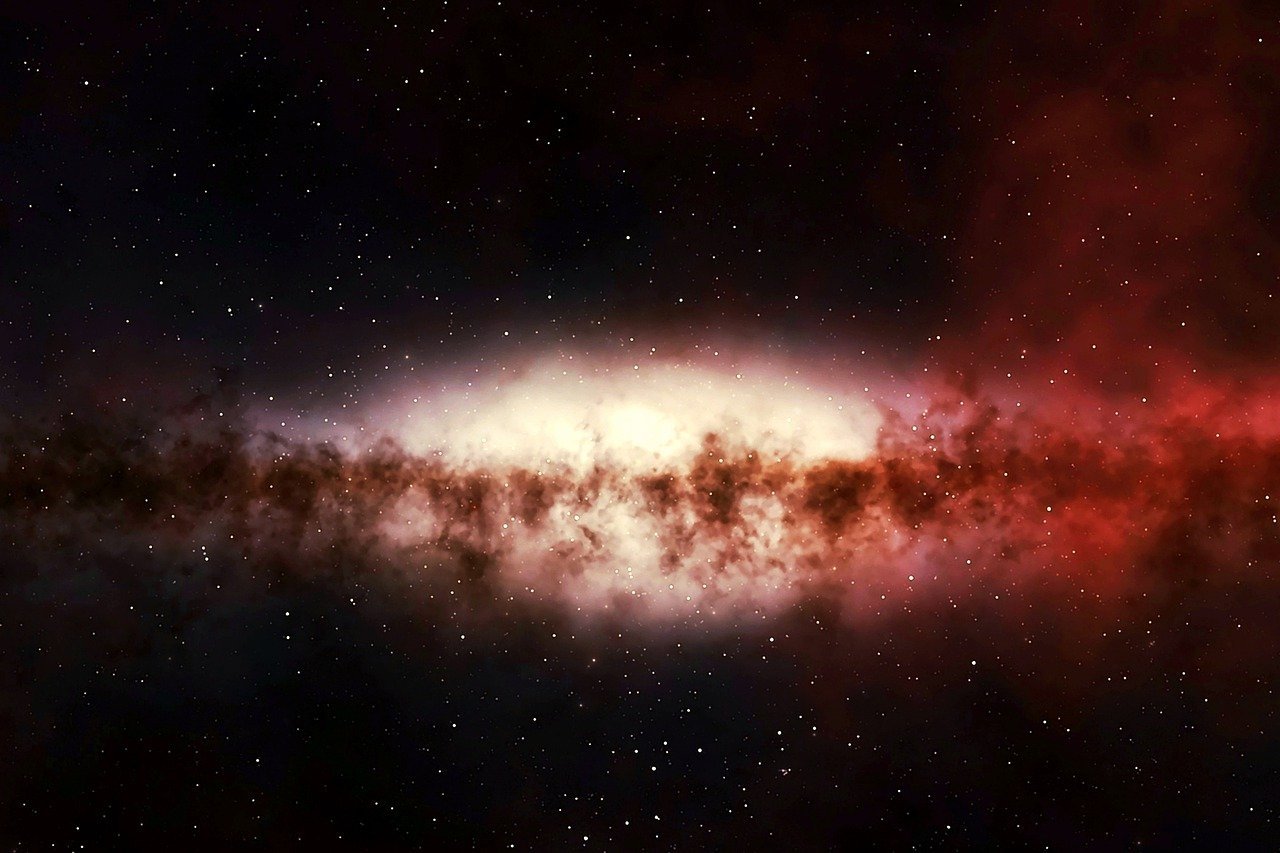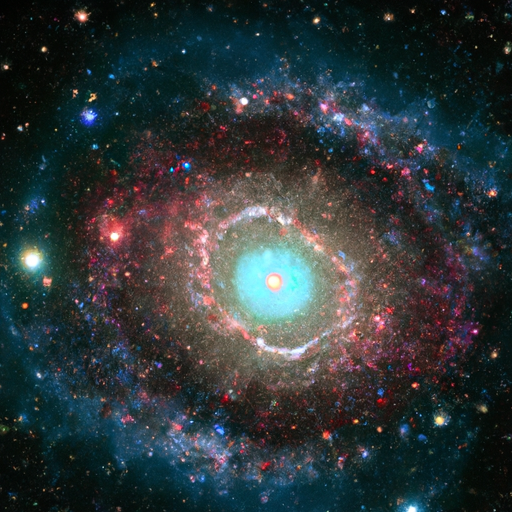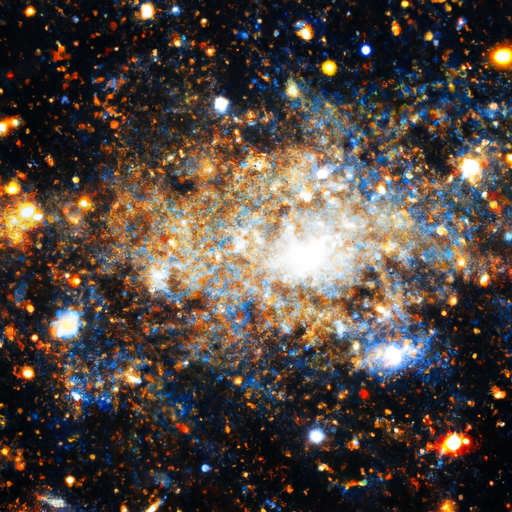Imagine contemplating the very origins of our universe, pondering questions about existence, time, and creation. This thought-provoking article titled “Philosophical Implications of the Big Bang: Reflecting on Existence, Time, and Creation” delves into the profound impact that the Big Bang theory has had on philosophy and our understanding of the universe. As you embark on this intellectual journey, prepare to explore the deepest philosophical questions surrounding our existence and the mysteries of time and creation.

The Big Bang Theory
Introduction to the Big Bang Theory
The Big Bang Theory is not just a popular television show, but a scientific theory that explores the origins of the universe. According to this theory, the universe began as an incredibly dense and hot singularity, and it has been expanding and cooling ever since. This remarkable idea has significant implications not only in the realm of science but also in philosophy, particularly in the areas of existence, reality, creation, time, and the nature of the universe itself.
Supporting evidence for the Big Bang Theory
While the Big Bang Theory is a scientific theory, it is not devoid of philosophical curiosity. Over the years, scientists have gathered substantial evidence supporting the existence of the Big Bang. The discovery of the cosmic microwave background radiation, a remnant of the intense heat from the early stages of the universe, provides strong evidence for the initial expansion of the universe. Additionally, the observed redshift of distant galaxies suggests that the universe is indeed expanding, as predicted by the Big Bang Theory. These pieces of evidence not only bolster the scientific validity of the theory but also give rise to profound philosophical questions about the nature of existence and reality.
Controversies and alternative theories
Like many scientific theories, the Big Bang Theory is not without controversy and alternative explanations. Some scientists propose alternative theories, such as the Steady State Theory, which suggests that the universe has always existed and is continually expanding while new matter is continuously being created. Moreover, certain philosophical perspectives question the idea of a singular origin of the universe, positing that there may have been cyclical patterns of expansion and contraction or even multiple universes existing simultaneously. While these alternative theories and perspectives challenge the Big Bang Theory, they also stimulate philosophical discussion around the creation of the universe and the philosophical implications arising from it.
Existence and Reality
Concepts of existence and reality
The Big Bang Theory forces us to contemplate the profound question of our existence and the nature of reality. It compels us to consider whether existence began with the Big Bang or if there was something before it. Furthermore, it raises questions about the reality we perceive. Does the Big Bang mark the beginning of reality, or is our perception of reality limited to the observable universe? These questions delve into the philosophy of metaphysics, pushing us to explore the fundamental nature of existence and the extent to which our reality is interconnected with the creation event of the Big Bang.
Implications of the Big Bang on existence and reality
If the Big Bang was the starting point of existence and reality, it raises fascinating implications for our understanding of our place in the universe. The idea that everything within our reality can be traced back to a single event instigates a sense of interconnectedness and interdependence. Moreover, it challenges our conventional notions of cause and effect, suggesting that the very fabric of our existence relies on a delicate and intricate balance of cosmic events. Therefore, the Big Bang Theory opens up new avenues for philosophical exploration into the nature of existence and the underlying reality that encompasses us.
Philosophical questions raised by the Big Bang
The existence of the Big Bang Theory introduces an array of philosophical questions that have captivated thinkers for centuries. It prompts us to ponder the nature of causality – what caused the Big Bang, and was there a cause at all? Additionally, it invites speculation on the nature of time before the Big Bang and the possibility of a timeless state. The Big Bang also touches upon the concept of infinite regression, prompting reflection on the possibility of an infinite chain of causes leading to the creation event. These philosophical questions challenge our understanding of the universe and the fundamental principles governing it.
The Creation of the Universe
The philosophical concept of creation
Throughout history, the concept of creation has been intertwined with religious and philosophical beliefs. The Big Bang Theory, in its essence, proposes a scientific explanation for the creation of the universe. It suggests that the universe came into being from a singularity, perhaps providing an alternative perspective on the notion of creation compared to religious narratives. This scientific explanation challenges philosophical views on creation, inviting a critical examination of the relationship between faith, reason, and the origins of the universe.
The role of the Big Bang in the creation of the universe
While the Big Bang Theory elucidates the early stages of the universe’s existence, it does not explain the origins of the singularity itself. This realization engenders a thought-provoking exploration of the concept of creation. It prompts us to ask whether the singularity had a cause or if it emerged spontaneously. Moreover, it encourages the contemplation of whether the laws of physics themselves are responsible for the creation event and if they transcend the boundaries of space and time. The Big Bang Theory, thus, invites philosophical discourse on the nature of creation and the potential underlying mechanisms governing it.
Implications on religious and philosophical beliefs
The concept of the Big Bang inevitably raises questions regarding its compatibility with religious and philosophical beliefs. It challenges religious creation narratives in which the universe originates from the divine or other transcendental forces. Nevertheless, some religious perspectives have embraced the Big Bang Theory as a scientific description of the moment of creation, relating it to the concept of God’s initial act. This interpretation reconciles scientific discoveries with religious beliefs, merging philosophy, faith, and scientific inquiry. The Big Bang Theory, therefore, invokes discussions on the relationship between scientific explanations and spiritual convictions and fosters a deeper understanding of their interconnectedness.
The Beginning of Time
The philosophical implications of time
Time, a concept deeply ingrained in our daily lives, undergoes profound contemplation in light of the Big Bang Theory. This scientific theory implies that time itself had a beginning, challenging conventional notions of an eternal and continuous passage of time. Consequently, it questions the existence of a temporal reality before the Big Bang and provokes philosophical discussions on the very nature of time and its implications on our understanding of the universe.
How the Big Bang relates to the concept of time
The Big Bang Theory suggests that the universe began with a singularity, marking the initiation of time itself. It postulates that time, along with space, expanded from this singular point. This imparts intriguing philosophical insights into the nature of time, proposing the possibility of a cosmic clock that started ticking with the Big Bang. Moreover, it prompts speculation on the directionality of time, the possibility of time loops, and the potential influence of the early stages of the universe on the arrow of time we experience today. These philosophical considerations illuminate our understanding of time and compel us to reevaluate our relationship with it.
Debates on the nature of time before the Big Bang
Before the Big Bang, the concept of time becomes enigmatic. The very notion of a “before” implies the existence of time, raising philosophical debates on whether time can exist independently of events. Some philosophical perspectives postulate the absence of any temporal reality before the Big Bang, identifying it as a singular point beyond the reach of time itself. Others propose cyclical models of time, encompassing previous universes and questioning the possibility of a timeless state. These debates surrounding the nature of time before the Big Bang stimulate philosophical contemplation, forcing us to grapple with the complexities of temporal existence.

Multiverse Theory
Introduction to the Multiverse Theory
The Multiverse Theory extends beyond the bounds of our observable universe, suggesting the existence of multiple universes beyond our own. While the Big Bang Theory focuses primarily on our universe’s origin, the Multiverse Theory speculates that our universe is just one of countless others. This notion revolutionizes our understanding of the cosmos and invokes philosophical questions regarding the nature of existence and the vastness of the universe.
Relationship between the Big Bang and the Multiverse Theory
The Multiverse Theory complements the Big Bang Theory, offering an imaginative expansion of our understanding of the universe. It raises intriguing philosophical implications, questioning the uniqueness of our own universe and the nature of existence within the realm of multiple universes. Furthermore, the Multiverse Theory challenges the concept of a singular beginning, inviting broader philosophical explorations on the infinite possibilities and potentialities that lay beyond our observable universe. The profound connection between the Big Bang Theory and the Multiverse Theory inspires philosophical contemplation, challenging our preconceived notions of existence and reality.
Philosophical implications of a multiverse
The idea of a multiverse triggers philosophical discussions on the nature of reality and existence. It pushes the boundaries of our understanding, prompting us to question whether each universe within the multiverse holds unique physical laws and constants or if there are overarching principles governing all universes. Moreover, the existence of a multiverse raises the philosophical question of how these parallel universes interact, if at all, and whether they provide insights into the nature of our own reality. The Multiverse Theory, therefore, instigates metaphysical inquiries that seek to unravel the philosophical implications of a cosmos populated by multiple universes.
Causality and Determinism
The concept of causality
Causality, the principle that each event has a preceding cause, is deeply ingrained in our understanding of the universe. The Big Bang Theory compels us to reevaluate this concept. It poses the question of whether there was a cause for the Big Bang, or if it emerged spontaneously. This enlivens philosophical debates surrounding causality, challenging our conventional understanding and inviting us to explore how the concept of causality applies to the creation event and the subsequent unfolding of the universe.
Implications of the Big Bang on causality
If the Big Bang marks the beginning of the universe, it raises intriguing implications for causality as we perceive it. The creation of the universe from a singularity suggests a break in the chain of cause and effect, introducing the possibility of an uncaused event. This, in turn, sparks philosophical inquiries into the nature of causality itself and whether the rules governing cause and effect apply to the origin of the universe. The Big Bang Theory, challenging our understanding of causality, engenders philosophical discourse that deepens our appreciation for the intricate principles that shape our reality.
Connections between determinism and the Big Bang
The question of determinism, the philosophical concept that all events are determined by preceding causes, emerges in light of the Big Bang Theory. Understanding the initial conditions set forth by the Big Bang and their relation to the present state of the universe invites contemplation on the nature of determinism. Are the fundamental laws of physics the driving forces behind the progression of the universe, or is there room for free will within this deterministic framework? The discussion surrounding determinism and the Big Bang expands our philosophical understanding of the choices we make and the extent to which they are influenced by cosmic causality.

The Problem of Infinite Regression
Exploring the problem of infinite regression
The problem of infinite regression arises when we ask what caused the events preceding the Big Bang. Delving deeper into the origins of the universe, we encounter a challenge: if each event requires a preceding cause, how far back does the chain go? The Big Bang Theory provokes contemplation on the notion of infinite regression and forces us to grapple with the complexities it presents.
How the Big Bang addresses the problem
The Big Bang Theory itself does not solve the problem of infinite regression; rather, it brings the issue to the forefront. It highlights the need for alternative philosophical solutions and prompts us to consider whether the existence of a singularity can act as the ultimate cause. Additionally, the proposal of a cyclical universe or the idea of a timeless state before the Big Bang presents intriguing possibilities for resolving this philosophical quandary. Exploring the problem of infinite regression in the context of the Big Bang Theory sparks intellectual discourse, pushing us to seek philosophical solutions outside traditional linear causal chains.
Alternative philosophical solutions
Various alternative philosophical solutions have been proposed to address the problem of infinite regression raised by the Big Bang Theory. Some philosophers argue that the singularity itself can be the ultimate cause, breaking the chain of causality as we know it. Others contend that the problem lies in our limited understanding of causality and that a reinterpretation of cause and effect may provide a solution. The exploration of these alternative solutions broadens the philosophical landscape, providing intellectual tools to grapple with the intricacies of the problem of infinite regression and its implications for our understanding of the universe.
The Nature of Existence
Philosophical perspectives on the nature of existence
Before the advent of the Big Bang Theory, philosophical perspectives on the nature of existence were diverse and multifaceted. However, the introduction of this scientific theory has added a new layer of complexity to these debates. It compels us to ask essential questions about what it means to exist and the nature of being itself. By exploring the origins of the universe, we delve deeper into our understanding of existence from philosophical, metaphysical, and ontological perspectives.
Implications of the Big Bang on the nature of existence
The Big Bang Theory challenges our preconceived notions of existence. If the universe had a definite beginning, it raises inquiries about what existed, if anything, before the Big Bang. It also fosters contemplation on the interconnectedness of existence, as everything we perceive today can trace its origins back to that singular point of creation. Furthermore, the realization that the creation event shaped the laws of physics and the conditions necessary for life to emerge adds complexity to the philosophical exploration of existence. The Big Bang Theory fundamentally alters our understanding of what it means to exist and invites us to question the nature of existence itself.
Debates on the purpose or meaning of existence
The profound implications of the Big Bang Theory extend to the philosophical discussions surrounding the purpose or meaning of existence. If the universe originated from a singularity, it raises questions about whether there is an inherent purpose or meaning to our existence. Some philosophical perspectives assert that the absence of a divine creator or external purpose necessitates the creation of meaning through individual or collective human endeavors. Others argue that the very existence of the universe, with its intricate complexity and the emergence of conscious beings, suggests a deeper purpose beyond our comprehension. The debates surrounding the purpose or meaning of existence inspired by the Big Bang Theory enrich our understanding of the human condition and the vastness of philosophical contemplation.

The Fine-Tuned Universe
Understanding the concept of a fine-tuned universe
The concept of a fine-tuned universe revolves around the intricate balance of physical constants and fundamental laws that allow life, as we know it, to exist. The Big Bang Theory sheds light on the early stages of the universe’s development, revealing the delicate conditions required for the emergence of galaxies, stars, planets, and ultimately, life. This concept of fine-tuning introduces profound philosophical inquiries into the nature of the universe and the existence of intelligent design.
Linking the Big Bang to the fine-tuned universe theory
The Big Bang Theory plays a pivotal role in understanding the fine-tuned nature of the universe. It reveals that the initial conditions and physical constants set forth by the Big Bang were finely tuned to enable the evolution of complex systems. The concept of a singularity giving rise to a universe with such precise properties evokes philosophical considerations about the possibility of a higher intelligence or purpose in the design of the cosmos. The connection between the Big Bang and the fine-tuned universe theory paves the way for philosophical discourse on the interplay between science, religion, and the existence of intentional design.
Implications for the existence of intelligent design
The fine-tuning of the universe, as revealed by the Big Bang Theory, fuels discussions surrounding the existence of intelligent design. It challenges the notion that the intricate balance of physical constants is purely coincidental and compels us to contemplate whether there is an intentional agency guiding the creation of the universe. The philosophical implications of fine-tuning prompt further scrutiny of the arguments for and against intelligent design, promoting critical thinking and discourse regarding the nature of the universe and its potential ties to meaning and purpose.
Ethical and Moral Implications
Exploring ethical and moral frameworks
Ethics and morality form the foundation of human societies, guiding our actions and shaping our understanding of right and wrong. The Big Bang Theory, while primarily a scientific theory, casts a light on the philosophical implications of our role within the universe and the ethical and moral frameworks that govern our behavior.
Implications of the Big Bang on ethical theories
The Big Bang Theory implicates profound implications on ethical theories. It emphasizes the interconnectedness of all existence, fostering a sense of shared responsibility for the universe. This interconnectedness prompts us to consider the ethical implications of our actions, not only towards other humans but also towards the environment and the universe as a whole. Additionally, the notion of the fine-tuned universe and the emergence of life raises ethical questions concerning our role as stewards of the cosmos. The Big Bang Theory, in conjunction with ethical theories, offers an opportunity for philosophical exploration into our moral responsibilities and the values that guide our actions.
Connections between cosmology and moral responsibility
The exploration of cosmology, fueled by the Big Bang Theory, leads to philosophical inquiries about the connection between our understanding of the universe and moral responsibility. As we delve deeper into the origins of the universe, we gain insights into the interdependencies and intricacies that sustain life. This understanding prompts contemplation on the ethical implications of our choices and actions. It invites us to consider the role of humanity in preserving the delicate balance of the universe, advocating for the preservation of the environment and fostering a sense of moral duty towards future generations. The connection between cosmology and moral responsibility uncovers philosophical reflections on the interplay between our place in the universe and the ethical frameworks that guide us.
In conclusion, the Big Bang Theory is not merely a scientific theory but an intellectual catalyst for profound philosophical exploration. It sparks contemplation on fundamental concepts such as existence, reality, creation, time, the nature of our universe, and even ethical and moral frameworks. From contemplating the implications of a singular origin to grappling with the complexities of time before the Big Bang, the philosophical implications of the Big Bang Theory provoke curiosity and intellectual discourse, pushing us to expand our understanding of the universe and our place within it.
